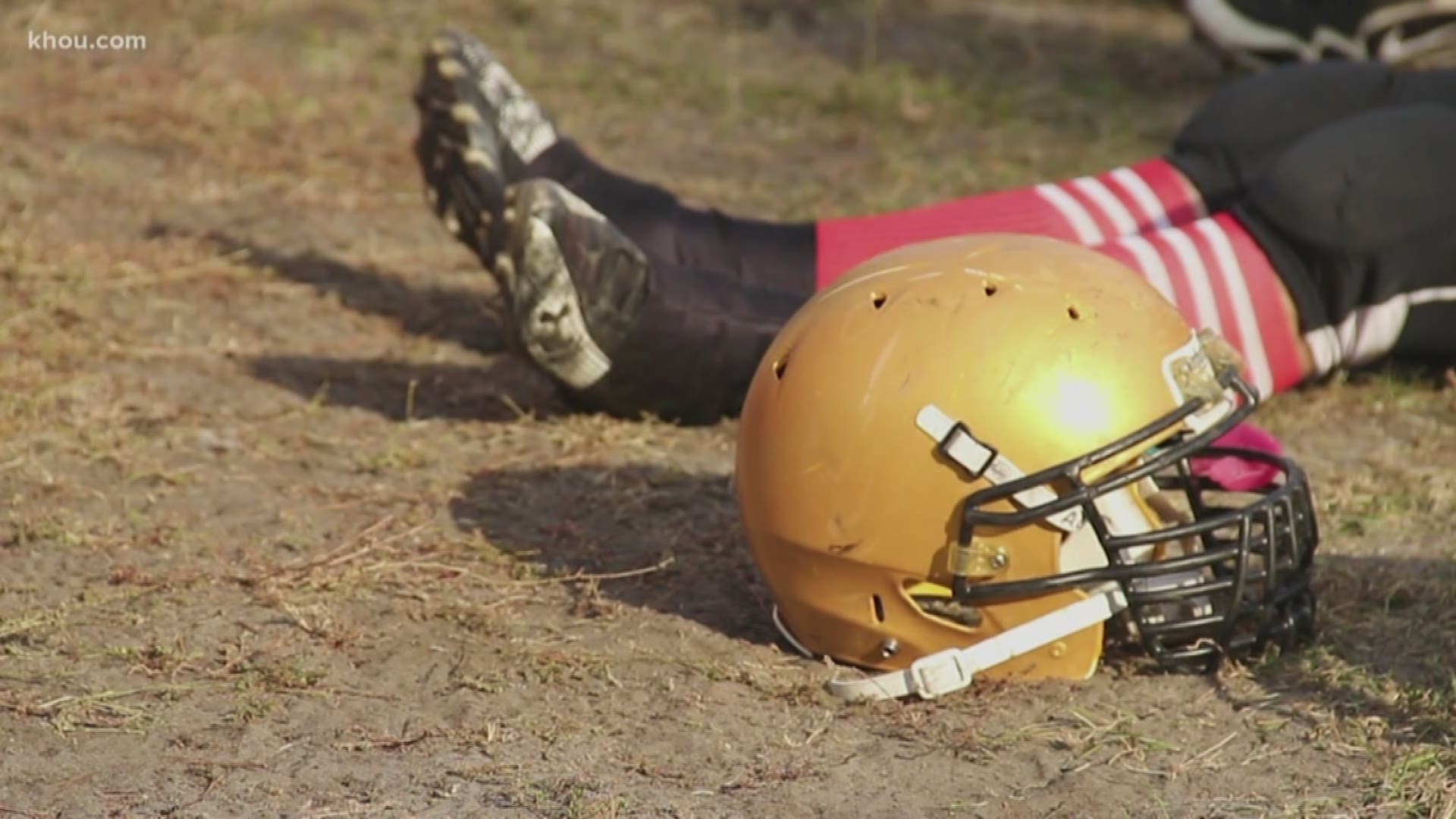HOUSTON — In a time where the United States is fighting an opioid epidemic, how can parents ensure their kids stay pain and addiction free?
Prescription drug abuse is one of the fastest growing drug problems in America, according to the Substance Abuse and Mental Health Services Administration, and athletes are most at risk.
RELATED: Dozens charged in Houston Opioid Takedown, including doctors, pharmacists, suspected drug dealers
If parents don’t pay attention, an injury could lead to a lifetime of pain and not the kind a doctor can fix.
The American Academy of Pediatrics says more than 215,000 children ages 5 to 14 are treated for football related injuries per year. However, most of them are not considered serious.
“Most of the time these injuries are not structural,” said Dr. Anay Patel, orthopedic surgeon with the Texas Orthopedic Hospital. “They are bone bruises, they are muscle bruises, ligament strains, things like that.”
Generally, Dr. Patel said he does not prescribe opiates or pain medication for teen injuries.
“Most of the time Tylenol and anti-inflammatories will provide sufficient relief without having to get into the pain medications, which have some substantial long-term consequences, especially for young people," he said.
He reserves prescribing opioids for patients that are healing and rehabilitating from surgerys or for patients who will be undergoing surgery later. Dr. Patel said the long-term risk of prescribing these medicines for others is just too great.
“We know that people who are most vulnerable to becoming abusers of pain medication are male, they are in the high-school age range," Dr. Patel said. “Athletes have a twice as high likelihood of abusing pain medications as non-athletes and males tend to abuse pain medications at about 60 percent higher than females.”
Dr. Patel adds a large portion of people suffering from the opiate crisis start with prescription pain medications that they usually weren’t prescribed.
If a child or teen is prescribed opioids for pain, Dr. Patel recommends parents control pill distribution. Once the pain has been managed, any additional pills should be removed from the home. Pharmacies will take extras and safely dispose of them.
He also recommends if another person in the house has a prescription, the pills should be hidden and counted on a regular basis. Signs of abuse may include aggression, increasing reports of pain without injuries, and children asking for additional money.
If an athlete insists they need the medicine to play through the pain, Dr. Patel recommends making them sit out the game and rest.
For information about how to safely dispose of medications, www.hcahealthcare.com/crushthecrisis.
ALSO POPULAR ON KHOU.COM

